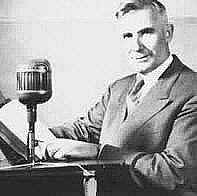A Quote by Northrop Frye
The entire Bible, viewed as a "divine comedy," is contained within a U-shaped story of this sort, one in which man, as explained, loses the tree and water of life at the beginning of Genesis and gets them back at the end of Revelation.
Related Quotes
I let go of the notion that the Bible is a divine product. I learned that it is a human cultural product, the product of two ancient communities, biblical Israel and early Christianity. As such, it contained their understandings and affirmations, not statements coming directly or somewhat directly from God. . . . I realized that whatever "divine revelation" and the "inspiration of the Bible" meant (if they meant anything), they did not mean that the Bible was a divine product with divine authority.
This tree is indeed a Tree of Life, for without the higher and finer sentiments man does not life; he merely exists. If any branch of that tree does not bear fruit, the Master tells us that it shall be cut off and cast into the fire. It is the duty of all living things to produce some truly constructive labor as recognition of the divine life which is within them. God is most glorified when His children glorify His spirit within themselves.
Let the gentleman go to Revelation to learn the decree of God - let him go to the Bible. . . . I said that slavery was sanctioned in the Bible, authorized, regulated, and recognized from Genesis to Revelation. . . . Slavery existed then in the earliest ages, and among the chosen people of God; and in Revelation we are told that it shall exist till the end of time shall come. You find it in the Old and New Testaments - in the prophecies, psalms, and the epistles of Paul; you find it recognized - sanctioned everywhere.
Once we truly grasp the message of the New Testament, it is impossible to read the Old Testament again without seeing Christ on every page, in every story, foreshadowed or anticipated in every event and narrative. The Bible must be read as a whole, beginning with Genesis and ending with Revelation, letting promise and fulfillment guide or expectations for what we will find there.
Man no longer lives in the beginning--he has lost the beginning. Now he finds he is in the middle, knowing neither the end nor the beginning, and yet knowing that he is in the middle, coming from the beginning and going towards the end. He sees that his life is determined by these two facets, of which he knows only that he does not know them
If the point of life is the same as the point of a story, the point of life is character transformation. If I got any comfort as I set out on my first story, it was that in nearly every story, the protagonist is transformed. He's a jerk at the beginning and nice at the end, or a coward at the beginning and brave at the end. If the character doesn't change, the story hasn't happened yet. And if story is derived from real life, if story is just condensed version of life then life itself may be designed to change us so that we evolve from one kind of person to another.
When it comes to the whole debate today over evolution versus creation, Jesus affirmed the early chapters of Genesis were accurate when He said, "Have you not read, that He who created them from the beginning made them male and female" (Matthew 19:4). Adam and Eve didn't come on the scene after billions of years of mutations and evolution. No. God created them all the way back in the beginning-just like Moses reported in the Book of Genesis.




































